'I was spat at in the '70s because of my colour - those days are back'

Dr Sarju Patel fears we are seeing a return to the overt racism he experienced as a young man
- Published
Being spat at and beaten up for the colour of his skin were ways in which Dr Sarju Patel experienced racism as a child in the 1970s.
As an adult, it was in the form of what he called "microaggressions" - being asked "where are you really from?" - where the intent behind the words is difficult to prove.
But he is concerned today's increasingly divided political climate means racist sentiment is "becoming more normalised" again, where "people are less afraid of hiding their true feelings towards you".
His comments come as official figures show hate crimes in Wales and England have risen for the first time in three years, which include increases in race and religiously motivated offences.
The charity Race Equality First, external believes the "racist and divisive rhetoric" of some politicians and public figures is partly to blame, while the Welsh government has set an ambition to be an anti-racist nation by 2030, though some feel progress has been slow and difficult to measure.
Racist attack victim calls for tougher sentences
- Published19 October 2022
Teen Muslims say they fear for safety over riots
- Published5 August 2024
The community group Cynefin Pamoja, external said work was needed "now more than ever" to educate young people on things such as racist slurs.
Dr Patel, a Cardiff University medical school professor, said the racism he experienced as a young man growing up in London meant he "hid" from his culture, opting to wear a suit at his wedding, instead of traditional Indian clothing.
"Being of Indian heritage was seen as a negative image, particularly as TV shows of the 70s and 80s portrayed Indians as subservient individuals," Dr Patel, who now lives in Cardiff, said.
"You obviously try to protect yourself from that.
"As I grew up and met my wife I changed that view and embraced my culture, and my kids have been fortunate not to have that negative stereotype within their upbringing, so they've embraced the culture from the start."
In adulthood, he is often asked where he is from, with his response sometimes bringing the follow up "but where are you really from?"
People have often tried to dismiss his interpretation, and he added: "You're gaslighting me, because you want me to see the world the way you see it.
"Your lived experience is different, therefore your interpretation of certain things is slightly different."
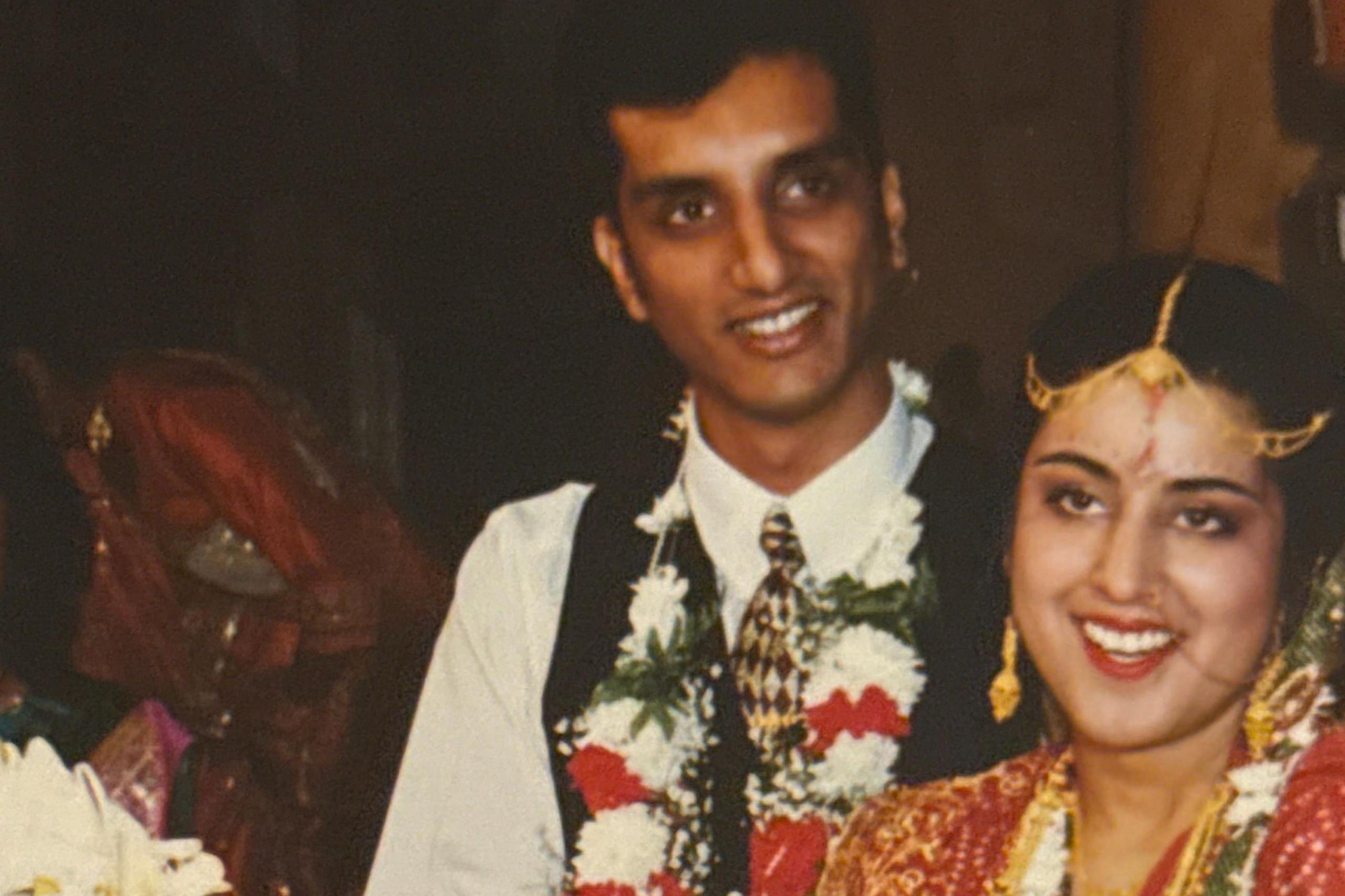
Sarju said as a young man negative Indian stereotypes and racist attitudes meant he hid from his culture, and opted to wear a suit at his own wedding, instead of traditional Indian clothing. He later came to embrace his heritage
There were 115,990 hate crime offences in the year ending March, up 2% from 113,166 the previous year, Home Office figures show.
Home Secretary Shabana Mahmood said Jewish and Muslim communities "continue to experience unacceptable levels of often violent hate crime".
Race Equality First's chief executive Aliya Mohammed said people of all political views needed to stand up against racism.
"People feel that it's now permissible for them to spout racist hate crime and hate speech because they're seeing this on their TVs," she said.
"In the run-up to the Senedd elections [in May 2026] there's been an increase in racist rhetoric and divisive rhetoric.
"We're seeing politicians blaming asylum seekers and refugees for problems like unemployment and the rise of NHS waiting times. But these problems are the result of long-standing failures in infrastructure and government policy.
"Whether they're on the left or the right, we're just not hearing enough counter narrative to the racist and divisive rhetoric that just seems to be constantly appearing on our screens."
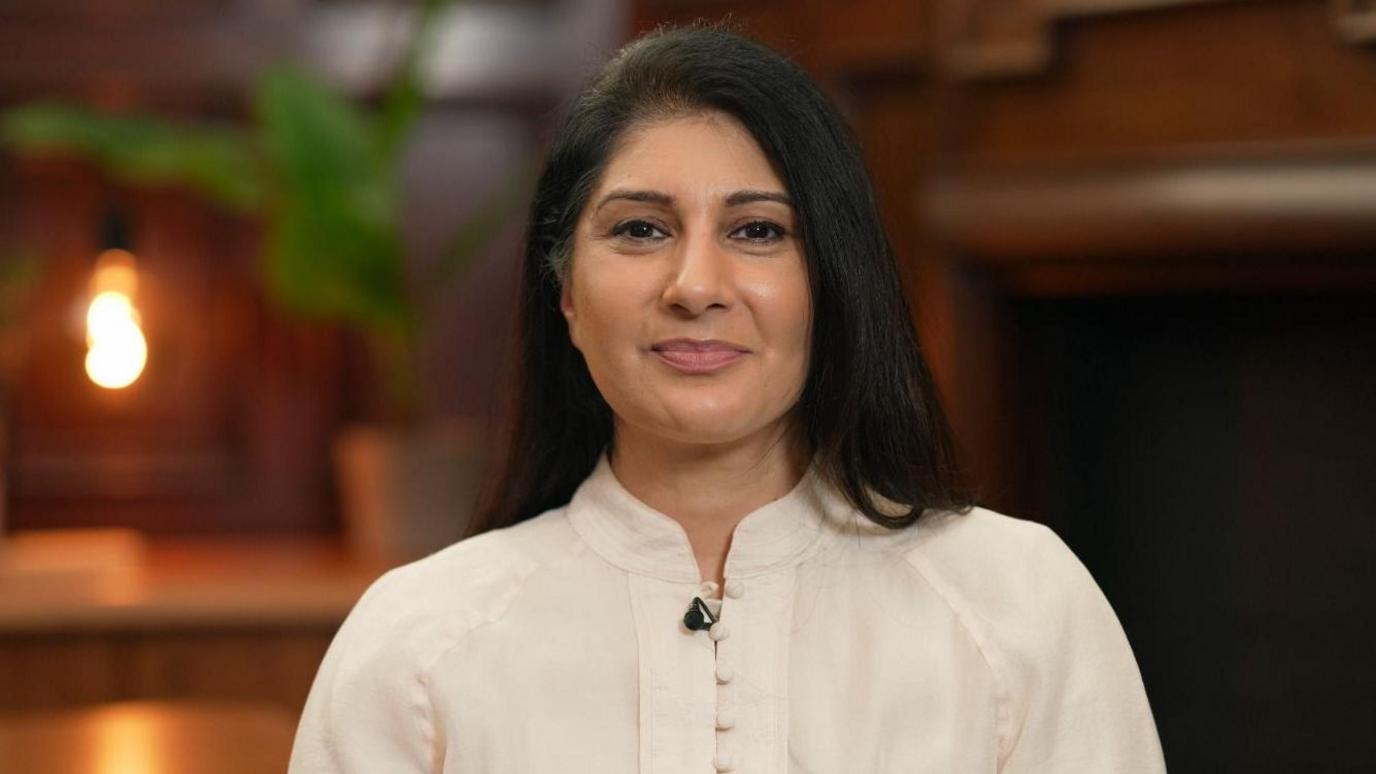
Aliya Mohammed said reports of racist incidents to Race Equality Wales included people being spat at or having their hijab pulled from their head
Dr Patel said public condemnation when a Premier League footballer is the victim of racist abuse rings hollow, when the attitude of those around him is they would "rather not get involved" if they witness it in everyday life.
But calling it out, he said, comes with risks, adding: "There's massive jeopardy there.
"If you're from a minoritised group you're more likely to be disciplined than one of your white colleagues, you're less likely to be promoted - these are the realities."
He explained there is a cumulative damage to years of dealing with racist attitudes, which ripples through the whole family.
"There are two things you can do - you can either do what they want you to do and cower. Let yourself be put in a box and stay there - or you fight back," he added.
"But you've got to be really careful how you fight back, because you're quickly labelled as the angry or aggressive ethnic person, or the troublemaker."
Research by NHS England, external showed black and ethnic minority staff were more likely to enter the formal disciplinary process compared to white staff and less likely to be appointed from a shortlist for jobs.
University College London research, external showed a similar recruitment disparity across a range of professional occupations.
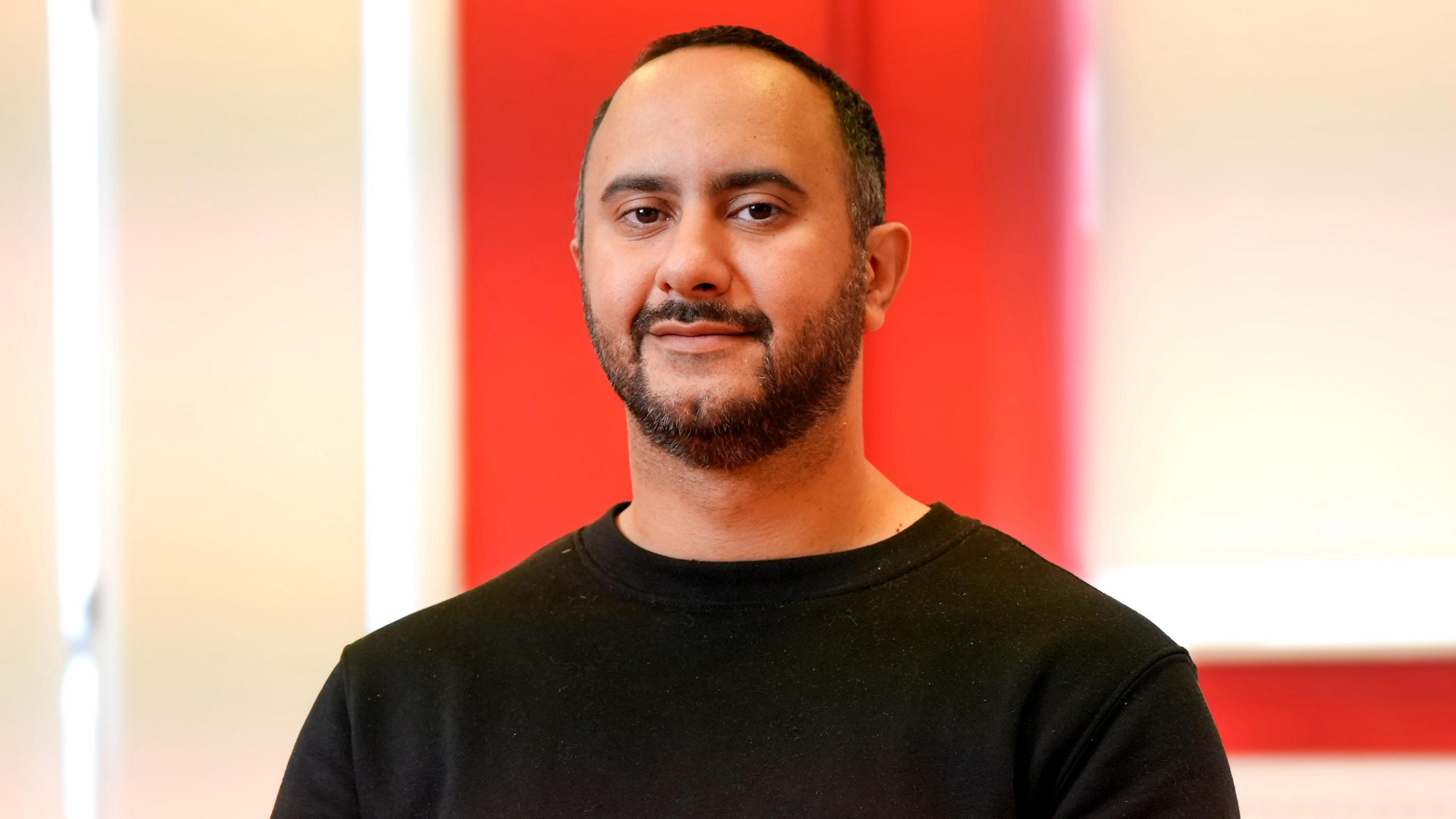
Mustafa Hassan said Cynefin Pamoja's anti-racism work with schools and other organisations tries to reframe perspectives with conversations, rather than confrontation
Creating an empowered younger generation is at the heart of what staff at community group Cynefin Pamoja, external aim to do.
The team said they were driven by a lack of representation, role models and an urgency to provide anti-racist training to schools and communities.
"We enable young people to see there are role models from minority backgrounds in Wales," said Mustafa Hassan, the organisation's training and learning manager.
He said those examples of resilience and success can be powerful, though "resilience" is a word he dislikes.
"It's draining when you have to be resilient on auto-pilot," he said.
"It's almost an expectation for people of colour and we don't want that going on to the next generation, we want it to be an equal playing field for everyone."
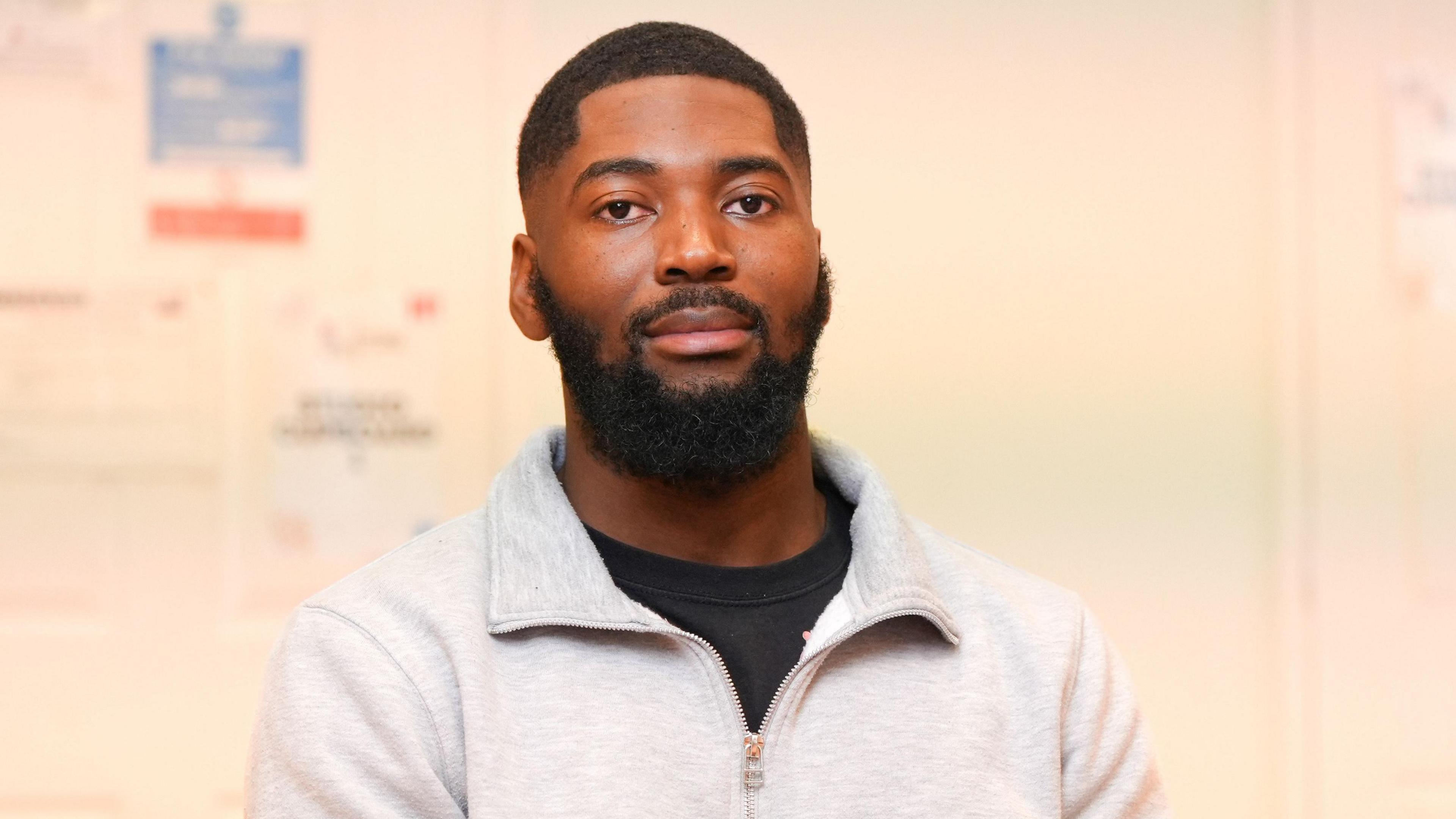
Billy Mazoya said anti-racism work needs to involve people who do not share the same views to enable them to see why racism is harmful
"I do think this work is needed now more than ever," said Billy Mazoya, co-founder and director of Cynefin Pamoja.
"Particularly when you look in the media and you hear a lot of extreme right-wing rhetoric around race. These younger people are on their phones, consuming this media and it's very easy for them to adopt these phrases and slurs.
"So by going into schools we're able to tell them 'here's another perspective'."
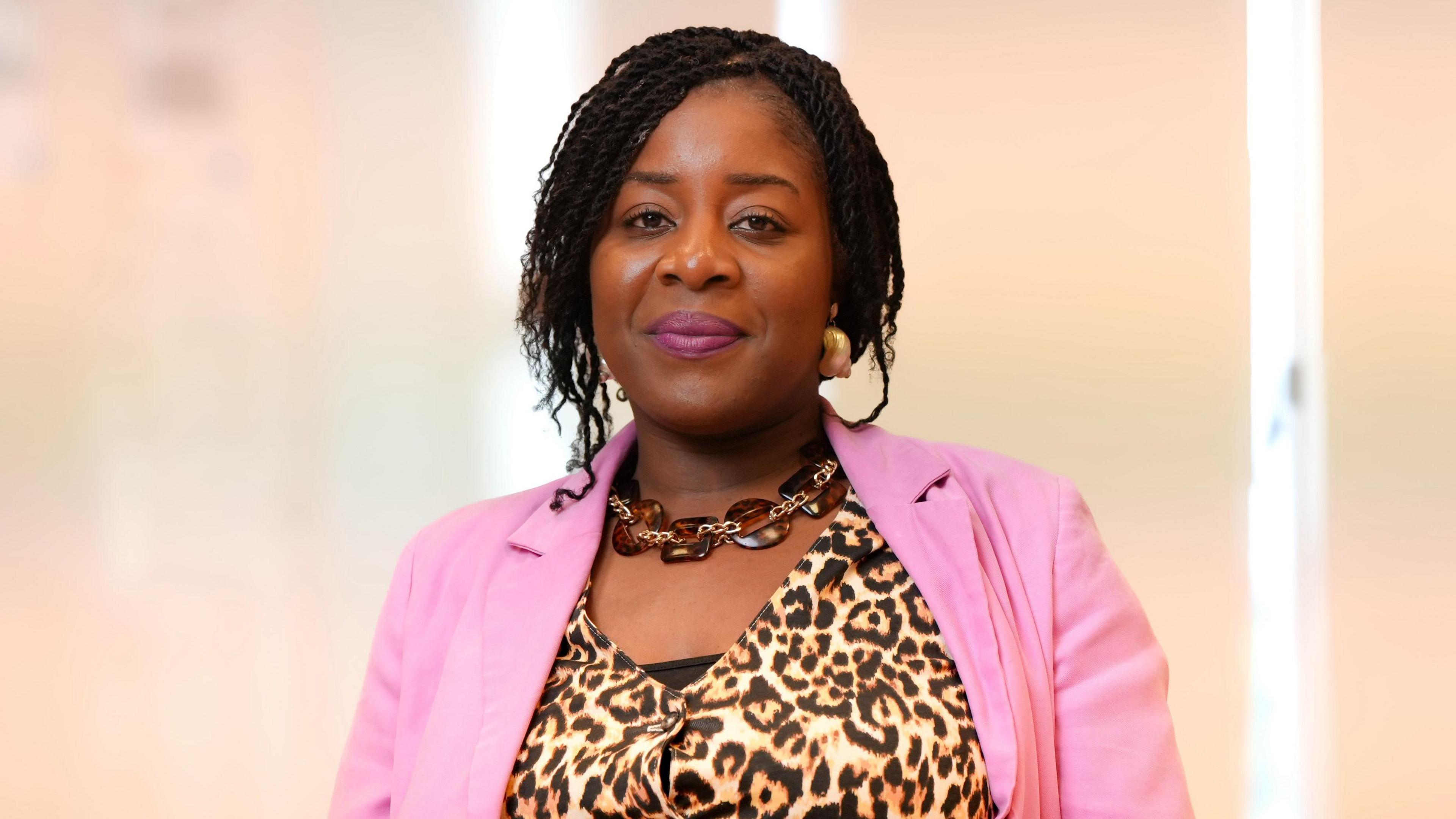
Nkechi Allen-Dawson said the number of black, Asian and ethnic minority teachers in Wales make up a small proportion of the total, so Cynefin Pamoja seeks to redress that lack of representation by taking role models to speak in schools
Chief executive officer Nkechi Allen-Dawson said their work supports the Welsh government's anti-racism goals, but was frustrated by lack of progress centrally.
Her team does not receive government funding for their work.
"The reality is that Wales has put forward this ambition - and it's a very big ambition - but by not following through on the commitments it creates almost a farce out of the whole thing," she said.
However, she added she was determined to see it succeed.
The Welsh government said: "We remain firmly committed to creating an anti-racist Wales by 2030, with our Anti-racist Wales Action Plan setting out clear goals for meaningful change.
"Our public services are working to create a truly fair Wales, reflected in people's daily lives, and we have made Wales the first part of the UK to mandate teaching black, Asian and minority ethnic histories and experiences in schools, whilst providing extensive anti-racist professional learning to education staff.
"Systemic change takes time, but we are building a strong foundation for long-term progress."
More top stories
- Published11 November
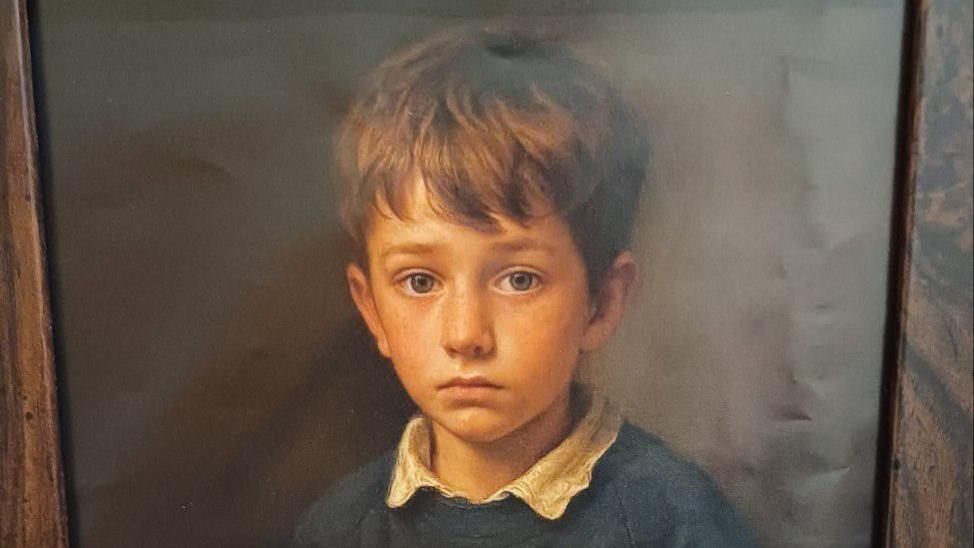
- Published10 November
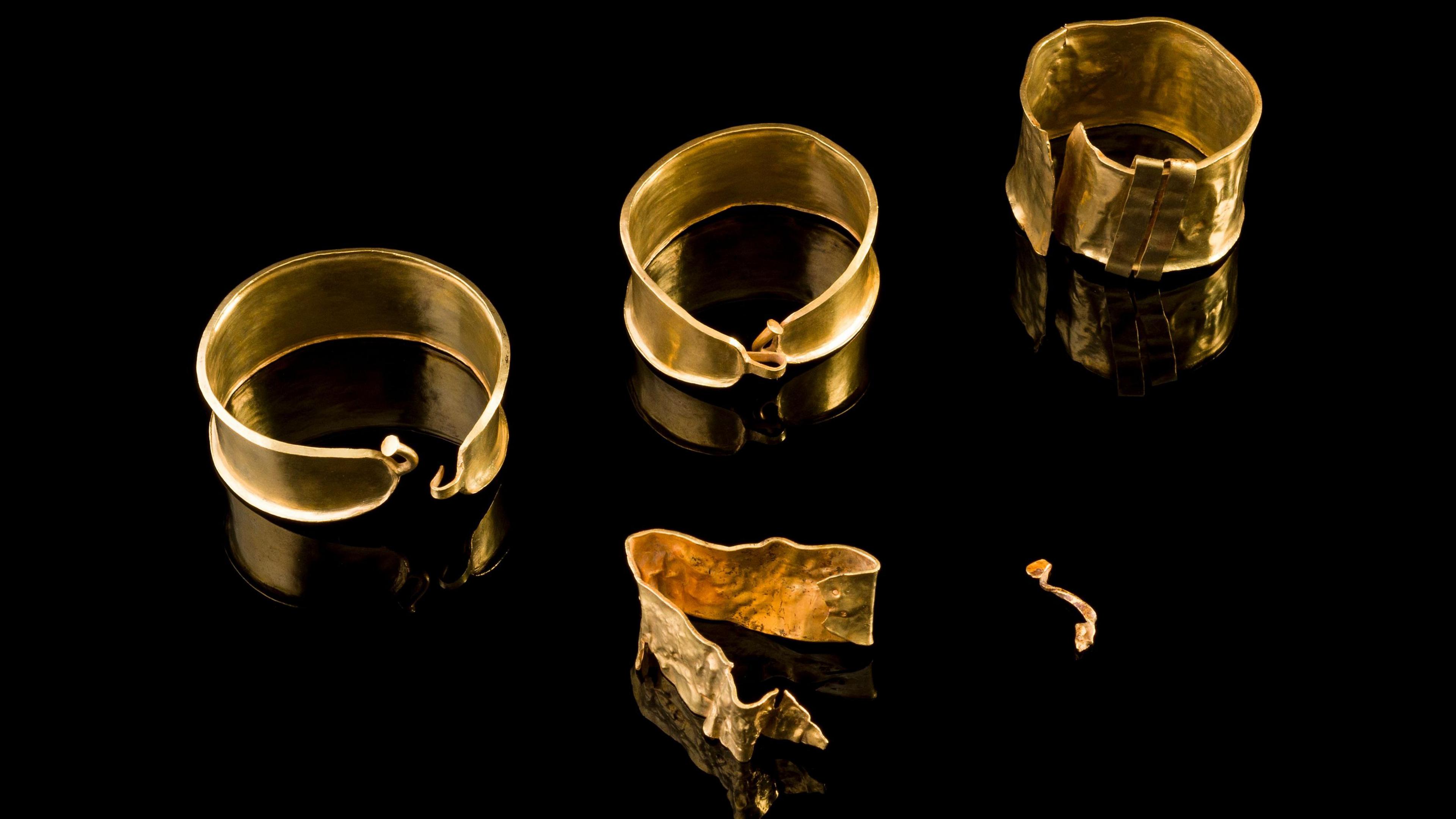
- Published8 November
